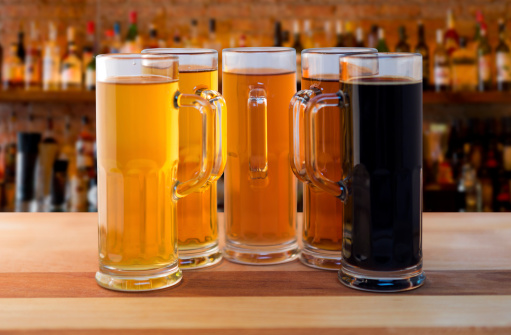
TTB withholds “gluten-free” label for specially processed beers.
It appears that craft beer makers are out of luck when it comes to labeling their products “gluten-free,” even when such producers use a process to remove gluten from some of their specialty beers. In February, the Alcohol and Tobacco Tax and Trade Bureau (TTB) decided that it would not update its alcohol labeling regulations to match the U.S. Food and Drug Administration’s (FDA) new rule regulating the labeling of gluten-free food products.
In August 2013, the FDA decided that foods with less than 20 parts per million (ppm) of gluten can legally bear a “gluten-free” label. By contrast, the TTB will continue to use a labeling scheme that distinguishes alcohol made with gluten-free ingredients (such as wine from grapes or vodka from potatoes) from alcohol made with gluten-containing ingredients, even if producers use a special process to remove the gluten (like the Oregon company, Craft Brew Alliance, purports to do with its Omission beer).
The FDA grappled for years with whether it would allow the “gluten-free” label on foods that use gluten-containing ingredients but have been processed to remove nearly all traces of gluten. During the rulemaking process, the FDA received numerous complaints about a proposed tiered labeling system that would distinguish “gluten-free” from “low-gluten” foods, as well as from those foods “processed” to be gluten-free. Organizations like the American Celiac Disease Alliance (ACDA) feared that a label hierarchy could be both confusing and dangerous for consumers. Too much information, the ACDA argued, can be just as dangerous as not enough.
In response, the FDA adopted a uniform standard where any food product containing fewer than 20 ppm of gluten can be labeled “gluten-free.” Unlike the TTB, the FDA allows the “gluten-free” label for foods made with gluten-containing grains. A product with ingredients derived from wheat can bear the label as long as the ingredient itself was processed to reduce gluten levels below the threshold. The FDA relied on medical studies showing that 20 ppm of gluten is safe for almost all celiac disease sufferers, even if an ingredient comes from a gluten-containing grain. Moreover, no reliable testing method can pinpoint gluten levels below 20 ppm.
So what does this mean for beer producers like CBA? Beer, of course, is made from gluten-rich grains like wheat or barley. But the FDA’s exemption for specially processed ingredients does not apply to breweries because the FDA does not regulate most alcoholic beverages. Wine beverages containing less than 7% alcohol are controlled by the FDA, but malt beers and spirits are regulated by the TTB.
In its rule last year, the FDA reserved judgment on the question of how to label beers that do fall under its purview. At that time, the FDA deferred any clear standard for alcohol to a forthcoming rule governing fermented and hydrolyzed beverages.
Brewers with beer brands specially formulated to remove gluten had been hopeful that the FDA’s new standard would force the TTB to follow suit. Yet, while working to be “as consistent as possible” with its sister agency, the TTB did not adopt that portion of the FDA’s rule governing ingredients processed to remove gluten-rich grains. The TTB’s fear was that a “gluten-free” label for beverages derived from gluten-containing grains would be inherently misleading.
Under the TTB’s guidelines, even beers containing lower than 20 ppm of gluten cannot be labeled “gluten-free.” Instead, brewers may only label these products as “crafted,” “processed,” or “treated” to remove gluten, together with the special disclaimer that the products “may contain gluten.”
Some beers, like Dogfish Head’s Tweason’ale, are made with naturally gluten-free sorghum and can use the “gluten-free” label. The TTB does not consider such sorghum-based beers “malt beverages” under the Federal Alcohol Administration Act, so they fall under the FDA’s labeling jurisdiction and thus benefit from the new rule.
Still, hope is not lost for traditional brewers pining for a “gluten-free” label. For one thing, beer that is sold only in-state may still be labeled “gluten-free” if state law allows. For beer sold in interstate commerce, the TTB’s rules apply. However, even then, TTB has expressly reserved the right to modify its guidelines again, and it has also pledged to reconsider the issue after the FDA promulgates a rule governing fermented beverages. We’ll drink to that.
This essay is the final installment in The Regulatory Review’s three-part series, Regulatory Essay Competition Winners.



